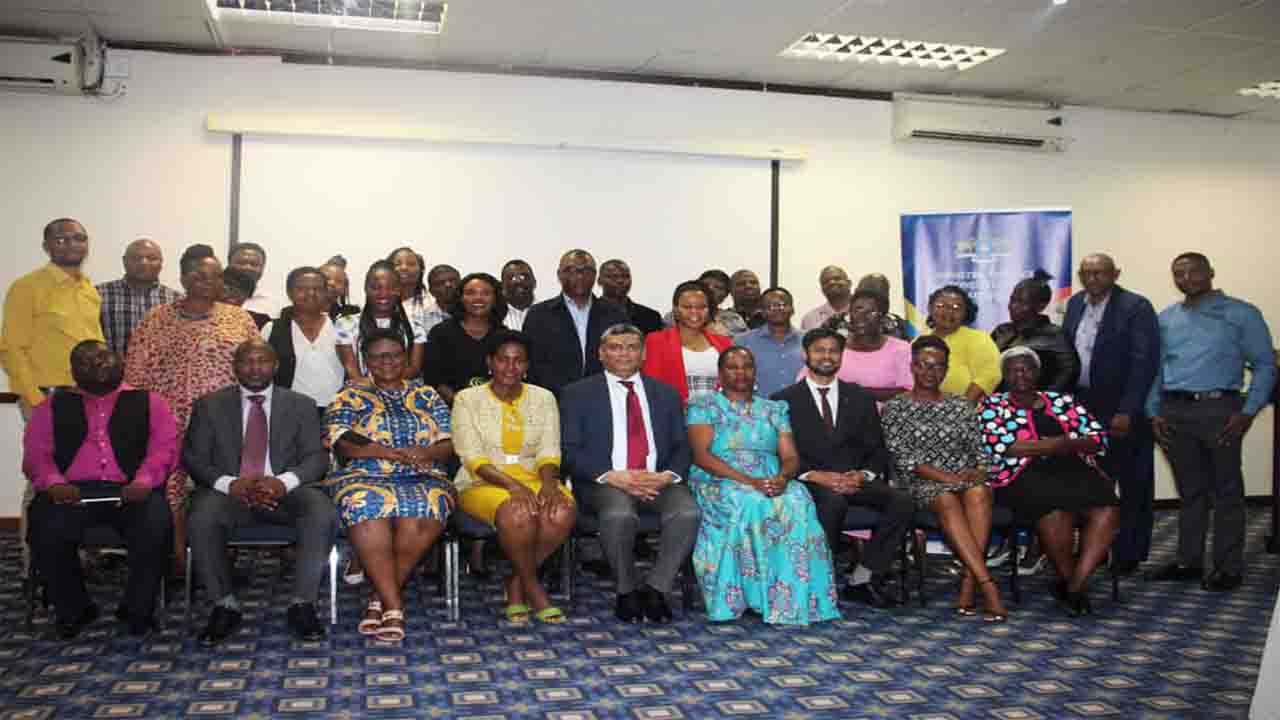UK (Commonwealth Union)_ The Southern African nation of the Kingdom of Eswatini has reaffirmed its adherence to United Nations human rights obligations through a capacity-building workshop conducted by the Commonwealth Secretariat. This three-day workshop, convened in Manzini, saw participation from representatives of governmental bodies, non-governmental organizations, and a delegation from the National Human Rights Commission, all of whom are part of the newly founded National Mechanism for Implementation, Reporting, and Follow-up (NMIRF).
Also read: CLMM TO FOCUS ON ACCESS TO JUSTICE
NMIRFs serve as national frameworks enabling countries to synchronize their reporting and implementation obligations upon accepting recommendations from UN human rights mechanisms, including the Universal Periodic Review (UPR) Mechanism of the UN Human Rights Council and Treaty Bodies. The intensive three-day workshop culminated in the development of an action plan to tackle the backlog of reports pending before Treaty Bodies and to implement recommendations that Eswatini had endorsed in the preceding Universal Periodic Review cycle.
Also read: NIGERIA TO DEPLOY POWERFUL COMMONWEALTH SOFTWARE FOR PUBLIC DEBT MANAGEMENT
According to Sumedha Ekanayake, Human Rights Adviser and one of the facilitators from the Secretariat, Eswatini’s establishment of its own NMIRF marks a significant stride in enhancing its engagement with the UN’s human rights mechanisms. The government’s solicitation of assistance from the Commonwealth Secretariat’s Human Rights Unit to fortify the capacity of its NMIRF further underscores its commitment to strengthening this mechanism. He stated, “Eswatini’s establishment of its own NMIRF, is a significant step forward in improving its engagement with the UN’s human rights mechanisms. The country’s request to the Commonwealth Secretariat’s Human Rights Unit to help develop the capacity of its NMIRF has further demonstrated the government’s commitment to strengthening this mechanism.”
Speaking at the inaugural session, Ms. Lindiwe Mbingo, the Principal Secretary of the Ministry of Justice and Constitutional Affairs, hailed the development of the mechanism as a testament to Eswatini’s unwavering dedication to human rights. Notably, the Commonwealth Secretariat has always encouraged member states to establish mechanisms like NMIRF, which is recognized as United Nations-endorsed good practice.
During the workshop’s closing session, Nozipho Mazibuko, State Reporting Coordinator, expressed gratitude, saying that the country values the Secretariat’s invaluable contributions in sharing best practices to enhance the office’s efficiency. She expressed hopes to maintain regular communication with the Secretariat to fulfill its mandate as the permanent secretariat of the NMIRF. She stated, “We appreciate the Secretariat’s invaluable contributions in sharing best practices to enhance the efficiency of our office. We will continue to maintain regular communication with you to learn more as we carry out our mandate as the permanent secretariat of the NMIRF.”
The Commonwealth Secretariat surveyed the state of human rights law implementation and best practices in the previous year. The resulting publication details how, over the course of the previous decade, seventeen Commonwealth member states were able to successfully establish these mechanisms, which aided in their increased compliance with UN human rights obligations. The Commonwealth Secretariat delegation also met with the newly-appointed Minister of Justice and Constitutional Affairs, HRH Prince Simelane Dhlamini, who applauded the Commonwealth’s contribution to further enhancing the NMIRF Secretariat’s capacity.








